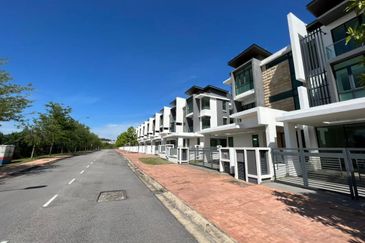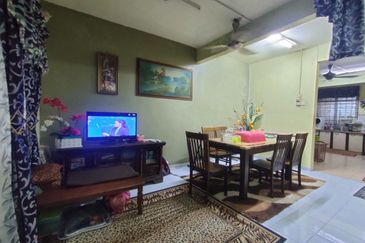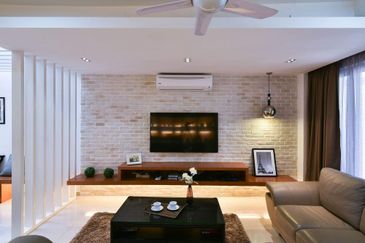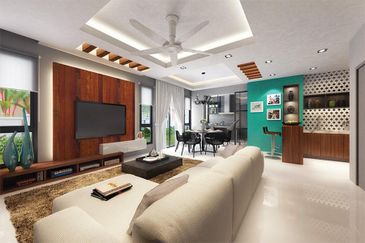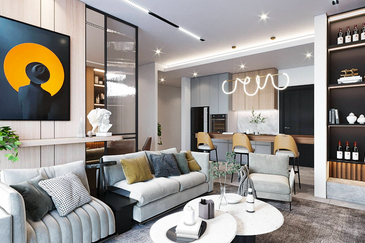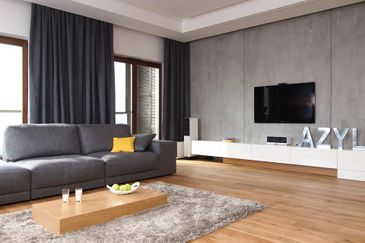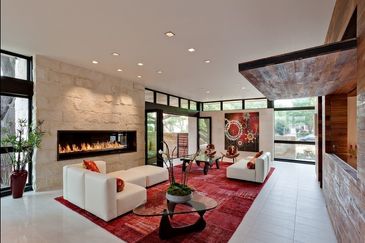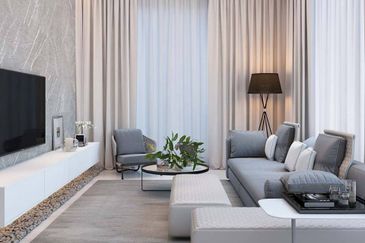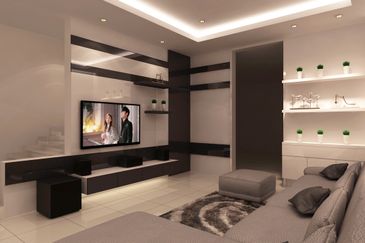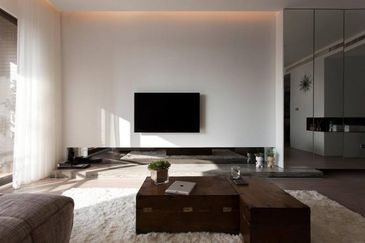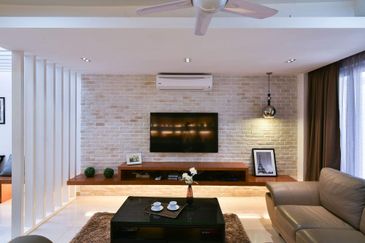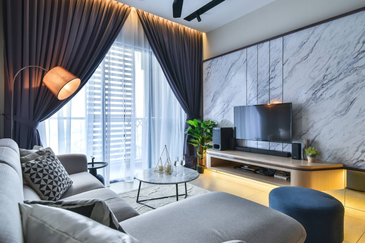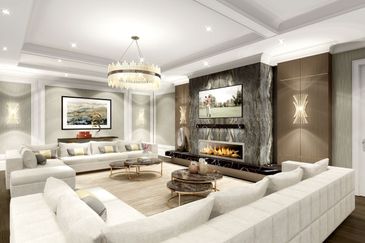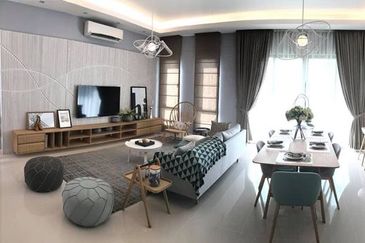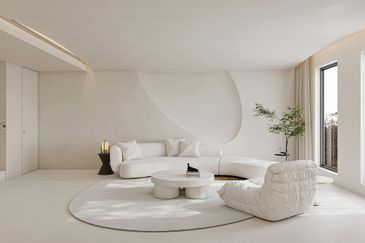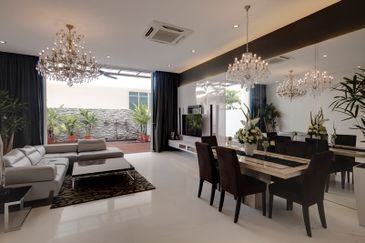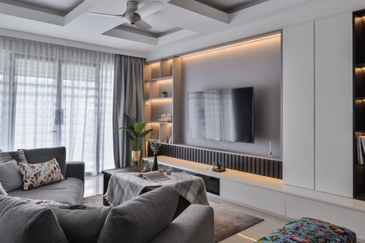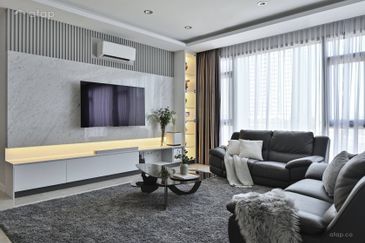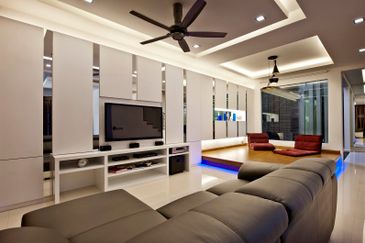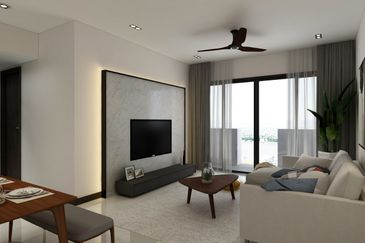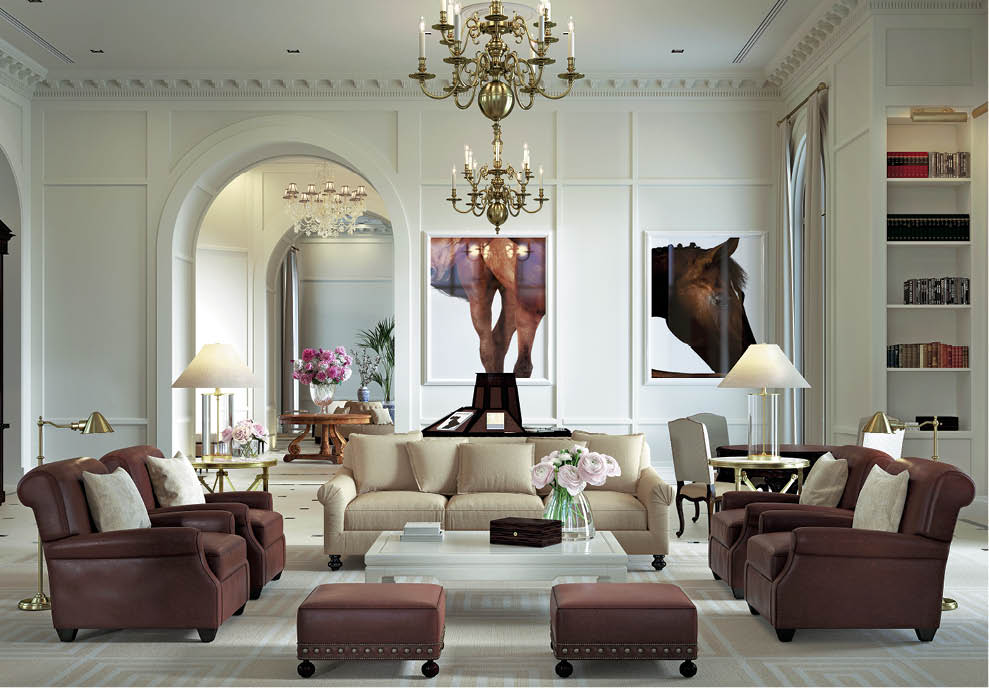
TECHNOLOGY, low birth rates and an aging population are among the trends that will disrupt or affect the property development industry in the future, according to Varangkana Artkarasatapon, vice-president of business development and new business (high-rise) of Sansiri Public Company Ltd (Thailand) — one of Thailand’s most prominent luxury property developers.

These are among the foreseeable challenges that the property development industry will have to face in the future. “All around the world we are talking about ‘digital disruptions’ like Uber or GrabCar services, and Airbnb. In my opinion, it will change our lifestyle in the future. To survive in this business in the future, we have to keep ourselves updated and seize opportunities ,” says Varangkana.
Other future challenges which she believes will form future trends in the industry is in housing an aging society as this, coupled with low birth rates, will be a major trend in Asia. “As a result, demand in property and everything will be less. How do we then sustain business?” she asks. Hence, the developer believes it has to diversify its business markets and attract foreign purchasers instead of depending on the local market. Sansiri’s foreign purchasers are mainly from China, Singapore and the West.
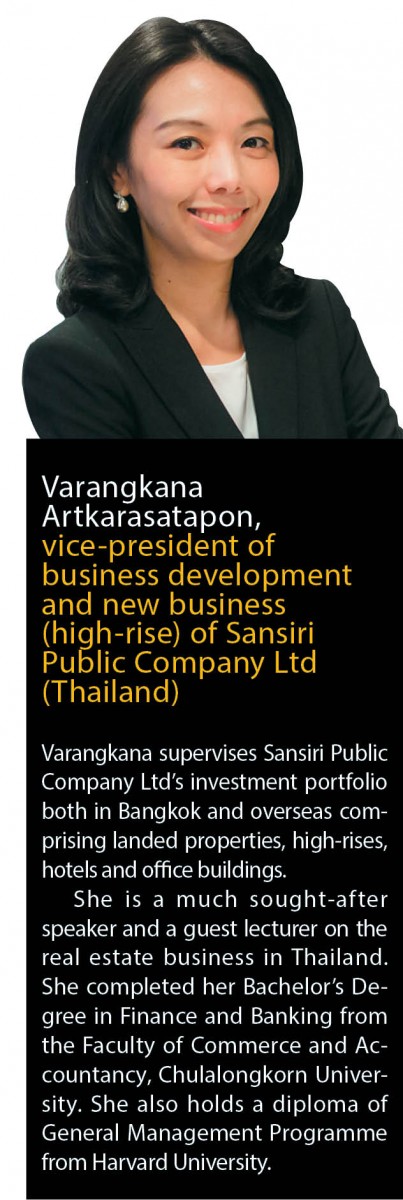
Meanwhile, in order to serve the elderly, homes have to be designed to suit their needs such as large walkways for wheelchairs and handrails in the restrooms, she adds.
She says the company keeps abreast with the latest trends and stays ahead of the curve by investing in its people — by educating them and encouraging them to develop ideas and innovations. “We encourage everyone to try and come up with new ideas and we do not punish them if their ideas fail. If we do so, nobody would like to create new things and share their ideas.”
For instance, while others develop hotel-branded condominiums, Sansiri decided to go one up to introduce the first designer-branded condominium in Bangkok and in Southeast Asia.
Partnering Polo Ralph Lauren, its 98 Wireless condominium located on Wireless Road, which is the most affluent area in Bangkok, will hit a new record price per sq m in Thailand, she reveals.
“Our marketing team was working so hard to find the concept for this project. If we offered another hotel-branded condominium, it would not make us different. We believe that 98 Wireless will be a landmark building in Thailand.
The developer also recognises the role technology plays in a modern and fast world. “New technologies are for the convenience of our customers. For example, we equip our houses and condominiums with home automation where residents can control all gates, security cameras and lights on their mobile. We have also developed our own ‘Home application’ as another channel to communicate with our customers, and also to make appointments with our home care service. Recently, we also installed ‘EV chargers’ in our condominium to serve electrical cars in future. It is the first residential project in Thailand installed with the EV charger.”
However, she stresses, when it comes to trends in property development, one has to be aware that a trend that succeeds in one country may not succeed in another. “Property development is a localised business. Every country has its own lifestyle, cultures and beliefs.”
She also believes that when introducing a new idea or a trend, the right timing is crucial. “Sometimes, the first time you introduce it, it may not be successful because it is not the right timing but the second time, it may be more successful because the market is then ready to accept it. Of course, it would be best if the timing is right the first time,” she says.
This story first appeared in TheEdgeProperty.com pullout on Oct 7, 2016, which comes with The Edge Financial Daily every Friday. Download TheEdgeProperty.com pullout here for free.


